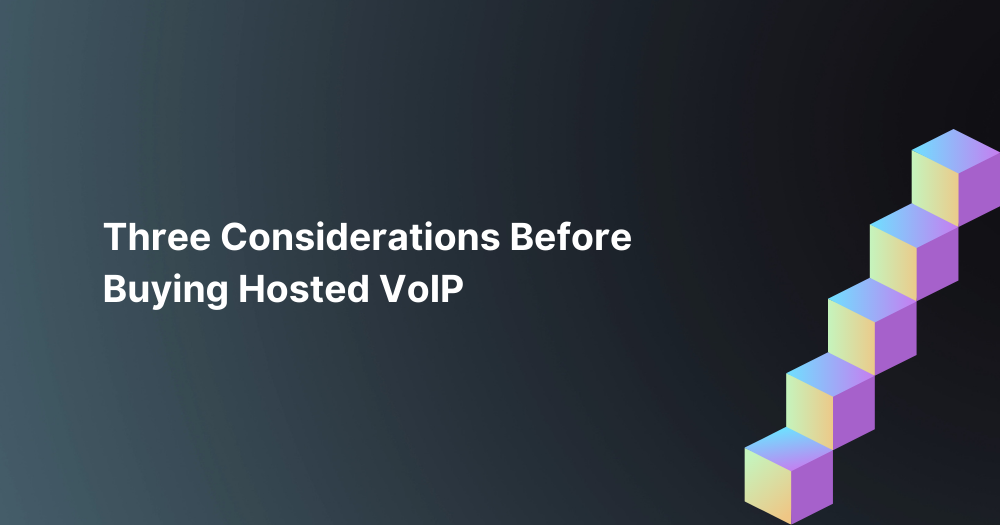
When it comes to investing in new technology, it’s tempting to keep putting it off. After all, if what an enterprise has works just fine, why rock the boat? In the case of buying hosted Voice over Internet Protocol (VoIP), enterprises using an old private branch exchange (PBX) may think one functioning phone system is as good as another. But VoIP offers benefits that make it worth a switch:
These are just a few of the reasons that an enterprise may be considering buying hosted VoIP, but before choosing a provider or specific application, it’s a good idea to include these three considerations in the process to determine the best phone system:
VoIP has matured since its introduction, improving in quality and reliability, but it does have a sensitivity to network conditions. Increased network traffic can cause congestion and result in jitter or dropped packets.
For many organizations, the network is a central topic of discussion, as many of the broader changes in enterprise technology are demanding much more from the network infrastructure. A hosted VoIP provider can help you determine if your network is ready for VoIP.
In order to implement on-site VoIP, there’s a basic requirement of a Session Internet Protocol (SIP) trunk, which acts as a connector from the PBX to the public phone network. The cost of putting the SIP trunk in place will depend on how many phone lines are needed to support the number of simultaneous calls that will be placed at any given time. A general guideline is to provide a SIP trunk for each three users, but it’s important to understand employees’ phone habits and plan accordingly.
When choosing a provider, look for one that will port your existing telephone numbers through to the SIP trunk. Even if they charge a fee for this service, it will be worth it not to inform customers of a new phone number, update a website or reprint business cards.
A bigger organization may have the in-house talent to manage a VoIP system effectively, but among smaller companies it may be more cost-effective to choose cloud-hosted VoIP. Many companies of all sizes are finding that outsourcing to a cloud service offers the opportunity for IT staff to focus on more strategic measures while turning over the daily monitoring of a VoIP system to a managed service provider.
Choosing the right provider when buying hosted VoIP is a critical decision for companies of all sizes. BlackPoint IT Services is the only company in Arizona that will come to your office and install your VoIP phones for you. Contact us today to discuss the benefits that the best VoIP providers offer and learn more about the implementation process.